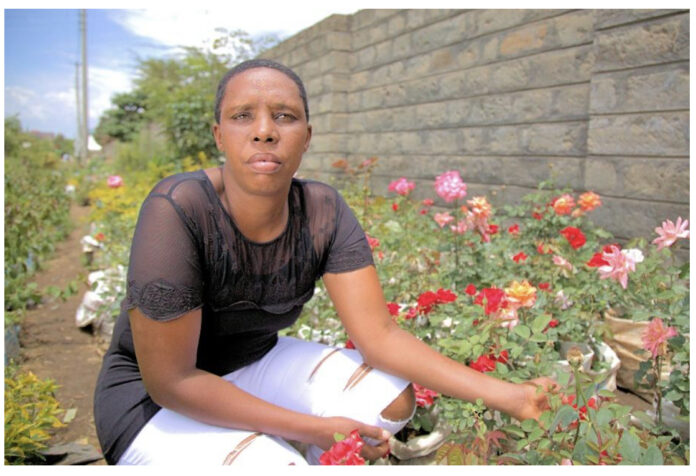Women continue to be underrepresented in climate debate and governance, as demonstrated at this year’s Cop27 United Nations conference, where women accounted for less than 34% of country negotiating teams. This needs to change. Women are bearing the brunt of climate change and must be fully represented at climate negotiations and within climate finance to ensure their distinct vulnerabilities, requirements, and contributions are prioritized.
Climate change is a threat multiplier
Research has found that the least gender-equal societies are often the most vulnerable to the climate emergency. Women account for 70% of the 1.3 billion people living in poverty and are more likely to depend on the land for survival. This leaves them especially exposed to the harmful impacts of extreme weather like heatwaves, droughts, flooding, and storms.
Worryingly, by 2030, climate change is expected to push a further 132 million into extreme poverty, many of who will be women, girls, and those from other marginalized groups. Deeply entrenched and pervasive discrimination is rendering women and girls more vulnerable to the impacts of climate change, and excluding them from discussions, decision-making, and finance focused on tackling the worsening crisis.
Climate change exacerbates existing inequalities, acting as a “threat multiplier” that aggravates gender-based violence while simultaneously curtailing the availability and effectiveness of protection mechanisms. Child marriage, sexual violence, and sexual and labor exploitation all rise in the wake of climate disasters and environmental breakdown, while displacement creates greater barriers to reporting violations and accessing essential services.
Denying women equal decision-making power and financial opportunities increases their susceptibility to mistreatment, destitution, and forced migration. A manifestation of this can be found in discriminatory laws and practices that curtail women’s inheritance and property rights, making it harder for them to mitigate against the consequences of an unstable climate and respond to climate-related losses and conflict.
Conversely, empowering women and girls creates ripple effects within families, communities, and countries. Improving their access to education, family planning, and financial inclusion all correspond to better resource governance, conservation management, and adaptation to climate disruption. While countries with a high representation of women in parliament are more prone to ratify international environment treaties.
Safeguarding our planet’s ecosystem requires a gender-responsive, human rights-based approach that tackles the root causes of women’s inequality and marginalization.
One way to achieve this is by reforming sex discriminatory laws, such as through the Global Campaign for Equality in Family Law, which is calling on governments to ensure equality for women and men in all matters relating to the family, including marriage, divorce, child custody, inheritance, and other laws, policies and practices governing family life. These reforms, amongst other rights, will ensure that women have the autonomy to make decisions that advance sustainable ways of living.
Women are being left out of climate finance
Despite the myriad of obstacles they face, women are not passive victims of climate disruption. They are at the forefront of environmental action, and when supported with adequate funding and resources, they have the knowledge and skills to propel transformation.
And yet, while leading analysts rank women’s equality as paramount in the fight against the climate crisis, research has found that just 1% of “gender equality” funding from governments flows to women’s organizations, and a mere 3% of environmental philanthropy supports “women’s environmental activism.”
Across the board, funding to women’s organizations makes up only a very small percentage of philanthropic giving and this shortfall is even greater when it comes to women and girls of color and feminist organizations in the Global South.
Cop27’s outcomes must prioritize women’s empowerment
To accomplish a just, green transition, greater efforts are needed to ensure the full inclusion of women in developing and delivering solutions. Women-led actions and groups must be sufficiently funded, and existing gender inequalities have to be addressed rather than ignored or exacerbated. This requires applying an intersectional gender lens when developing and implementing climate policies, and ensuring that funding and resources are flexible and easily accessible to women, including those in disadvantaged communities.
For all this to happen, it is imperative that financial investment in advancing women’s and girls’ rights are pushed high up national and international agendas. Cop27 provides a vital opportunity for governments to deliver on their promises to allocate billions to climate-vulnerable countries and groups – including women and girls.
Targeted investments in women’s capacity-building initiatives will yield manifold returns such as environmental protection, poverty alleviation, and improved health outcomes, to name just a few. Key stakeholders forging and implementing effective and equitable legal and policy frameworks must take into account the gender dimensions of climate change and adopt rule of law approaches that strengthen the position of women and girls in all aspects of life. Securing women’s rights isn’t just the right thing to do — it is also the best way to build a resilient, inclusive, and livable future for everyone.
Tara Carey
Equality Now is a feminist organization using the law to protect and promote the human rights of all women and girls. We make, change and apply the law to establish enduring equality for women and girls everywhere. Since 1992, our international network of lawyers, activists, and supporters have held governments responsible for ending legal inequality, sexual exploitation, sexual violence, and harmful practices. We aim to live our mission through the feminist principles of equality, anti-discrimination, inclusion, autonomy, and dignity.
For more details go to www.equalitynow.org, Facebook @equalitynoworg, LinkedIn Equality Now, and Twitter @equalitynow.
Join us in helping to bring reality and decency back by SUBSCRIBING to our Youtube channel: https://www.youtube.com/channel/UCQ1Ll1ylCg8U19AhNl-NoTg and SUPPORTING US where you can: Award Winning Independent Citizen Media Needs Your Help. PLEASE SUPPORT US FOR JUST £2 A MONTH https://dorseteye.com/donate/







